CNMV Regulatory Entity

In this article
The National Securities Market Commission (CNMV) is a regulatory body that inspects and supervises the Spanish securities market. In addition, they supervise all activities associated with those markets. In 1988, the CNMV Regulatory body was established under the supervision of Securities Market Law.
Securities Market Law, a significant part of the financial system, also introduces new measures to protect investors.
Through prudential supervision, CNMV often makes the transaction system secure enough for both old and new investors. All the securities are assigned with the ISIN codes, which are located in Spain. Different international organisations are also associated with CNMV to run the financial system powerfully.
The main aim of CNMV
CNMV’s main goal is to ensure fairness and transparency in the Spanish securities markets and ensure prices are formed accurately. Moreover, they protect investors from frauds and scams by preventing them from falling victim to them.
While exercising its powers, the CNMV receives a variety of information from and about market participants. Most of their information is already available on Official Registers and is also public.
The commission’s main task is to focus on those companies that offer or issue securities placed on secondary markets. Additionally, it deals with companies that provide investment services and collective investment schemes.
CNMV also performs prudential supervision for the protection of transactions and increases system transparency.
CNMV participating with international institutions
CNMV is also actively involved in several international institutions. Including IOSCO (International Organisation of Securities Commissions), ESMA (European Securities and Markets Authority), or the FSB (Financial Stability Board). They also collaborate with the Ibero-American Institute of the Stock Market.
Furthermore, CNMV advises the Ministry of Economy and the Government on matters related to the securities market.
Various Spanish authorities participating in the institutions of the European Union rely on their assistance and advice. Additionally, they act as a reviewer of the company’s law as well as a market participant.
How does CNMV settle, clear, and register securities?
CNMV supervises some post-trading activities, such as clearing, novation, registration, and settlement. However, the market infrastructure and the members perform these activities to record cash and instruments in the individual accounts of both buyers and sellers.
The CNMV also oversees organisational requirements, capital, risk management, and standards of conduct. In addition, to clear derivative instruments, it is often assigned to ensure compliance with certain obligations.
In addition, CNMV provides technical assistance to the European Commission for evaluating all financial sectors interested in joining the EU. There is an advisory committee, a council, and an executive committee.
They are generally responsible for following up on organisational requirements, protecting securities, adding firms to settlements, and covering up prudential requirements.
How can non-residents pay fees for CNMV registration?
CNMV collects the fees from taxable persons. Those living in Spain are required to appoint a representative to pay the fees. Before that, they must complete the Representation Agreement form, which is required by Law 16/2014 of 30 September.
If the Spanish Tax Agency has not assigned the taxable entity or individual a VAT number, they will be provided with an ex officio VAT number. It is a process that CNMV will handle. Then, when the corresponding fee is levied, the VAT number is displayed.
Can CNMV dismiss the license of entities?
Securities markets are regulated differently than other markets, and all registrants must follow these rules. The CNMV can also disseminate all the information necessary for investor protection, as well as issue warnings. If any of the organisation’s members do not follow the rules set by the organisation, a warning is issued. It also introduces new measures to protect investors.
Any investment made through an unauthorised entity will undoubtedly result in a potential capital loss. Informing the investor about the importance of protection will enable them to understand better which products they should invest in and which are harmful to providing financial services.
How to submit a complaint to CNMV?
CNMV is obtained from the customer care service or the department handling all the entities’ and markets’ complaints. The Customer Defence Regulation governs all complaints, which can be found on the official website or local offices. In the regulations, the deadline for filing a complaint is already specified.
A complaint must be submitted in writing and must include a date. It is advisable for the customer to submit the original document and to keep a copy of it. For the process to proceed without any problems, it needs to be stamped by the relevant entity.
The customer care department will answer your complaint within two months. The customer can file a second complaint with the Customer Complaints Service Department if they are not satisfied with their response.
Who can file a complaint and why?
Complaints Service, hence, deals with all those complaints which the investors submit. This often includes the investment fund unit-holders as well as Investment Company shareholders.
Complaints can relate to the overall functioning of their services or the process of transactions. It can also be about those specific facts that have damaged the particular complaining party’s interests or rights because of breach of contract, or transparency or the regulations.
Furthermore, a Spanish investor can also file a complaint with Customer Complaint Service as a FIN-NET member. If their complaint is not addressed, they can also submit their application to any foreign financial institution.
FIN-NET is a European cooperation network. It provides the users with some essential financial services to access the out-of-court claim procedures within cross-border disputes.
An investor can look for a suitable complaint system through complaint service and offer you vital information to proceed with the complaint procedure.
Bottom line
To summarise, the National Securities Market Commission (CNMV) is all about conducting the responsibility of a regulatory entity to handle all financial services part of the securities market. Functioning under the Ministry of Economy, CNMV ensures that a safe, transparent, and stable financial market is achieved to protect the investors and brokers against any financial scam.
Jason Morgan is an experienced forex analyst and writer with a deep understanding of the financial markets. With over 13+ years of industry experience, he has honed his skills in analyzing and forecasting currency movements, providing valuable insights to traders and investors.
Forex Content Writer | Market Analyst
Relevant Posts

LFSA Regulatory Entity
[top_three_brokers] Labuan Financial Services Authority (Labuan FSA) is responsible for providing financial services in Labuan…
Read more

FFAJ Regulatory Entity
[top_three_brokers] By reflecting all the developing funds, FFAJ started working in 1989. FFAJ is an…
Read more

GFSC Regulatory Entity
[top_three_brokers] Guernsey Financial Services Commission is charged with maintaining financial industry standards in the Bailiwick…
Read more

FCMC Regulatory Entity
[top_three_brokers] The Financial and Capitals Market Commission is an independent regulatory entity set up in…
Read more

AMF Regulatory Entity
[top_three_brokers] AMF, the Autorite des Marches Financiers, also known as a financial market authority, is…
Read more

CBR Regulatory Entity
[top_three_brokers] The Central Bank of Russia is the country's institution responsible for developing the state's…
Read more

SCB Regulatory Entity
[top_three_brokers] SCB is the abbreviation of "The Securities Commission of The Bahamas (SCB)." This sector…
Read more

MAS Regulatory Entity
[top_three_brokers] Internationally, the Monetary Authority of Singapore (MAS) has long been considered the gold standard…
Read more

FSCS UK Regulatory Entity
[top_three_brokers] Financial Services Compensation Scheme FSCS is a compensation scheme based in the UK. They…
Read more

NBRB Regulatory Entity
[top_three_brokers] NBRB Regulatory Entity (National Bank of the Republic of Belarus) is the Republic of…
Read more
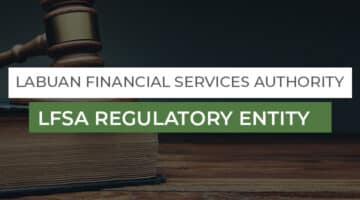
LFSA Regulatory Entity
[top_three_brokers] Labuan Financial Services Authority (Labuan FSA) is responsible for providing financial services in Labuan…

FFAJ Regulatory Entity
[top_three_brokers] By reflecting all the developing funds, FFAJ started working in 1989. FFAJ is an…

GFSC Regulatory Entity
[top_three_brokers] Guernsey Financial Services Commission is charged with maintaining financial industry standards in the Bailiwick…
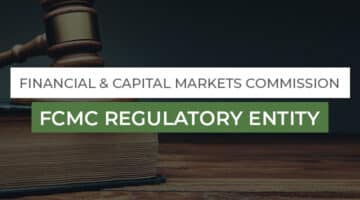
FCMC Regulatory Entity
[top_three_brokers] The Financial and Capitals Market Commission is an independent regulatory entity set up in…
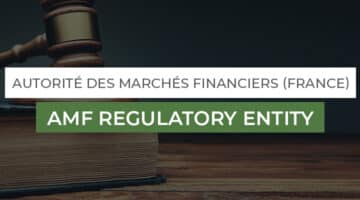
AMF Regulatory Entity
[top_three_brokers] AMF, the Autorite des Marches Financiers, also known as a financial market authority, is…

CBR Regulatory Entity
[top_three_brokers] The Central Bank of Russia is the country's institution responsible for developing the state's…
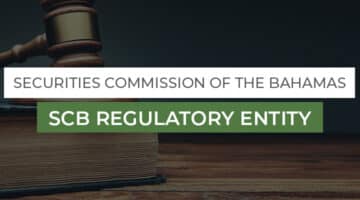
SCB Regulatory Entity
[top_three_brokers] SCB is the abbreviation of "The Securities Commission of The Bahamas (SCB)." This sector…

MAS Regulatory Entity
[top_three_brokers] Internationally, the Monetary Authority of Singapore (MAS) has long been considered the gold standard…

FSCS UK Regulatory Entity
[top_three_brokers] Financial Services Compensation Scheme FSCS is a compensation scheme based in the UK. They…
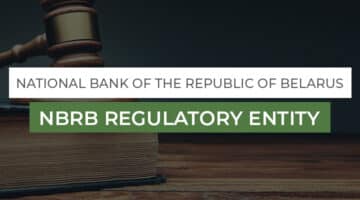
NBRB Regulatory Entity
[top_three_brokers] NBRB Regulatory Entity (National Bank of the Republic of Belarus) is the Republic of…


